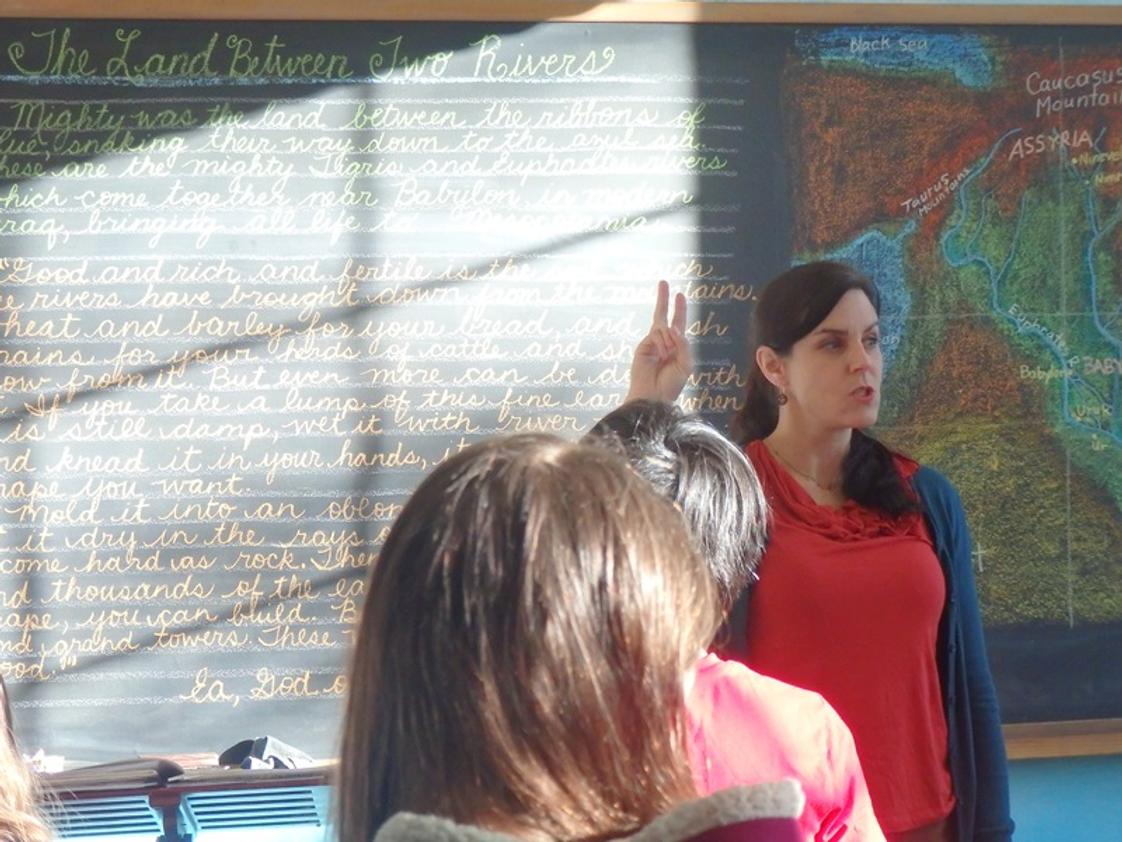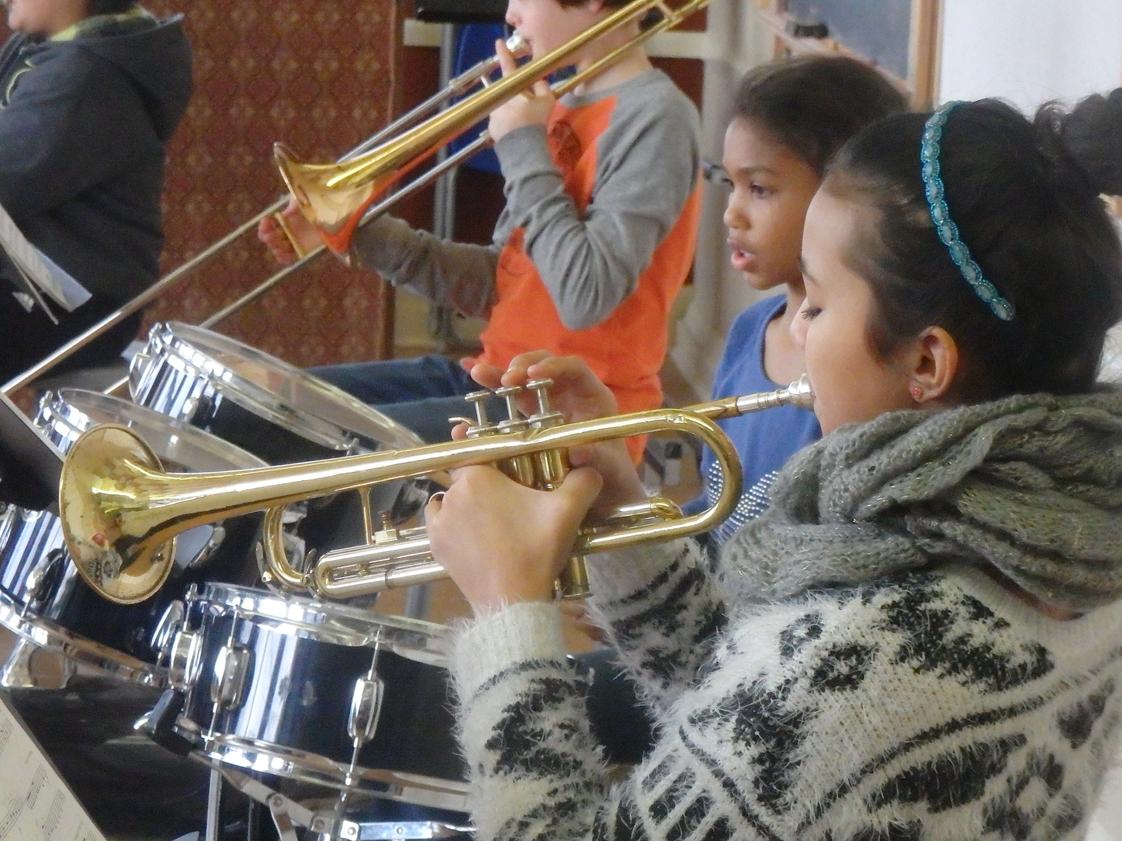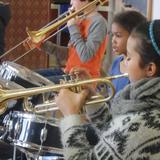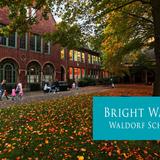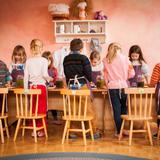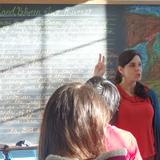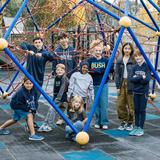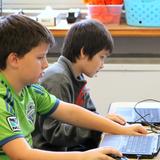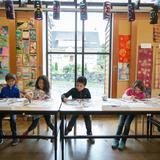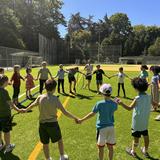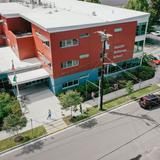Bright Water Waldorf School was founded in 1998 out of a desire for greater access to Waldorf education in Seattle.
Waldorf education is based on a deep understanding of the needs of the growing child and the maturing adolescent.
Through a rich curriculum and innovative teaching methods, Waldorf education addresses the whole child, working to develop clarity in thought, balance in feeling and initiative in action.
Our students receive much individual attention and guidance. Faculty members work closely with students, helping them to learn academic discipline and responsibility and teaching them to work independently.
The social life of our school is lively and warm, and students thrive in a caring community of teachers and peers.
The inherent security they experience in a Waldorf school enables students to look to the future with confidence; the bonds they form often last for a life time.
Bright Water Waldorf School offers Preschool through Grade Eight and Parent and Toddler classes.
Quick Stats (2025)
- School Type: School with Special Program Emphasis
- Grades: Nursery/Preschool-8
- Enrollment: 119 students
- Acceptance rate: 86%
- Average class size: 11 students
- Application Deadline: Jan. 12 / rolling
- Source: Verified school update
School Overview
School Type
Religious Affiliation
Grades Offered
Grades Nursery/Preschool-8
Year Founded
1998
Student Body
Total Students
119 students
Student Body Type
Co-ed
% Students of Color
17%
State avg.: 30%
Students by Grade

Academics and Faculty
Total Classroom Teachers
16 teachers
Student : Teacher Ratio
7:1
National avg.: 13:1
% Faculty w/Advanced Degree
16%
Average Class Size
11 students
Classroom Dress Code
Casual
Tuition and Acceptance Rate
Admission Deadline
Jan. 12 / rolling
Tuition Notes
Tuition ranges from $9,500 to $23,000 for the 2023-2024 school year.
% on Financial Aid
63%
Average Financial Aid Grant
$40
Acceptance Rate
86%
National avg.: 85%
Admissions Director
Melissa Lang Lytle
Admissions Associate
Pax Piper
Sports
Total Sports Offered
5 sports
Sports
School Notes
- Bright Water Waldorf School was founded in 1998 out of a desire for greater access to Waldorf education in Seattle. Waldorf education is based on a deep understanding of the needs of the growing child and the maturing adolescent. Through a rich curriculum and innovative teaching methods, Waldorf education addresses the whole child, working to develop clarity in thought, balance in feeling and initiative in action. Our students receive much individual attention and guidance. Faculty members work closely with students, helping them to learn academic discipline and responsibility and teaching them to work independently. The social life of our school is lively and warm, and students thrive in a caring community of teachers and peers. The inherent security they experience in a Waldorf school enables students to look to the future with confidence; the bonds they form often last for a life time. Bright Water Waldorf School offers Preschool through Grade Eight.
Source: Verified school update
Frequently Asked Questions
What is the acceptance rate of Bright Water Waldorf School?
The acceptance rate of Bright Water Waldorf School is 86%, which is higher than the national average of 85%.
What sports does Bright Water Waldorf School offer?
Bright Water Waldorf School offers 5 interscholastic sports: Archery, Basketball, Cross Country, Ultimate Frisbee and Volleyball.
When is the application deadline for Bright Water Waldorf School?
The application deadline for Bright Water Waldorf School is Jan. 12 / rolling (applications are due on Jan. 12 but additional applications are reviewed year-round as space permits ).
In what neighborhood is Bright Water Waldorf School located?
Bright Water Waldorf School is located in the Central District neighborhood of Seattle, WA. There are 3 other private schools located in Central District.
School Reviews
5 12/27/2018
Bright Water is a magical and very special place. We are grateful every day that we send our daughter to this school. She is in the early childhood program and we couldn`t be more happy.Her teacher is lovely. She cares so much about each student and is so invested in their well-being and growth. The parent community is cohesive and friendly and so invested in the school.During the school day, the children bake and paint and dance and draw; they hear stories and sing songs. They play outside for hours every day. They form such close relationships and treat each other like a family. In Early Childhood, there are not formal "academic" lessons, but the teachers integrate the building blocks of early education so seamlessly: children learn fine motor skills through sweet hand movement games, painting, drawing and working in other artistic medium such as beeswax. They learn phonetics through story-telling and in the way that Waldorf teachers articulate their words in regular speech to the children. My four-year-old daughter has had no academic lessons in reading, but she has naturally started to phonetically sound out words and spell them when she speaks. I attribute this to the slow, deliberate speaking of the teachers and the way they instruct through story-telling peaking her interest in how letters and words sound.The classrooms are homelike, calming and beautiful. The kids transition mainly through song and familiarity with the rhythm of the day. The children have confidence in and take ownership of the flow of the day and you notice very little struggle between students and teachers.The Early Childhood program has no media in the classrooms and asks that children not come to school in branded clothing (Frozen, Star Wars, etc.). This has been a wonderful thing for my daughter and seems to be for the other children as well. They develop the most intricate games that come entirely from their own imagination. We highly recommend this school to anyone looking for a loving, nurturing place for their children that will foster curiosity, imagination and intellect and do it all with so much love and care.
5 11/9/2017
My two children spent 8 years here. They have emerged (one from the elementary school, one from the middle school) as thoughtful, skilled humans. I feel being at Bright Water extended and enriched their childhoods in ways that couldn't have been replicated elsewhere (and that I couldn't have done on my own as a parent). A big part of that was the focus on real-life, tactile experiences and downplaying the world of media influence. Also focusing on a developmentally-appropriate curriculum was important. There's no rush to "get ahead." There is moving through the right stages at the right times.Having spent countless hours outside every day, and on hikes and camping trips, they have no fear of inclement weather. ("Mom, I'm a Waldorf kid. I think I can handle a little rain," says my son.) Art-making, music, movement, and math are folded into so much of the days of Bright Water students. They jump rope while reciting the times tables, for example. They recite verses with their class and move their bodies to tell the story. This is all in addition to their academics, which get more rigorous as they move up the grades, particularly in the middle school. The school day is full of rhythm, ritual, and predictability. It is quite structured, which I must point out to dispel any notion that Waldorf education is not. As a family, we've benefited so much from the leadership, guidance and modeling of the staff and the other parents. Parents of young children need a community, and Bright Water provides it.
5 9/10/2017
As a parent observing my children, I`ve had the moment that a lot of Waldorf parents have had where we`ve seen the magic. The interactions between the teacher and the students, and student to student, that are informed with respect, affection and tolerance. One senses a harmonious family-living, learning, and working together, and much enjoying itself in the process. Nimble minds and joyful hearts! That`s what comes to mind when I describe the children at BWWS. If they don`t know the answer, they are very comfortable in a personal belief that they will eventually figure it out. They feel their bodies can climb any tree, and that their hands can create whatever they put their minds to. When the weight of the wrong pressure at the wrong time is lifted, the real child is able to emerge and flourish. I`ve over heard one of the teachers say-"they aren`t afraid of a blank piece of paper!" You can see it when you look at their faces.The children are happy and fulfilled and inspired as they learn to read and act to music, learn to speak Japanese and Spanish, learn to play a string instrument and brass, learn to enjoy modern history and the renaissance, and learn artful woodworking and embroidery. Waldorf education rigor is gradual as they master cursive writing and creation of their own textbooks. My daughter's stellar K teacher understood what a 4,5 & 6 year old world should be-listening to magical stories with puppet shows, building forts, chopping vegetables for the soup pot, setting tables and pouring tea, dancing and singing with joy. She was learning to work with her hands by sculpting with clay, threading with yarn, painting with water colors, and building structures with wood. Guided by an extremely skilled Waldorf teacher, my daughter was not only washing linens and manipulating beeswax but stopping to smell the roses and witnessing a bird building its nest as her K family got to know every nook of Volunteer park. Total bliss! The invaluable teachers know that what they are doing transcends conventional educational processes, as they beautifully model the Steiner philosophy of schooling the head, hands and heart. This holistic and developmentally appropriate approach provides an exceptional educational experience that not only means so much to all of the families on a daily basis, but becomes a part of who our children are for the rest of their lives. --Grateful Parent
Endorse Bright Water Waldorf School. Endorsements should be a few sentences in length. Please include any comments on:
- Quality of academic programs, teachers, and facilities
- Availability of music, art, sports and other extracurricular activities
- Academic or athletic awards
Recent Articles

A Parent's Guide To Understanding High School Teaching Methods
This comprehensive guide helps parents navigate the various teaching methods used in today's high school classrooms. By understanding these approaches, you'll be better equipped to support your teen's learning journey, communicate effectively with teachers, and create a complementary learning environment at home.

February 08, 2025
Social Emotional Learning: Education's Hidden SymphonyA musician's perspective on Social Emotional Learning reveals how this educational framework orchestrates success through five essential emotional competencies.

January 24, 2025
A Roadmap For Starting A Private SchoolUse this roadmap as a set of talking points with your trusted mentors and professionals to start the private school of your dreams. You're not alone. Over the years, hundreds of folks like you have had the same dream. From Quintilian to Maria Montessori to Lucy Madeira Wing, visionary educators have established schools to teach according to their beliefs and methodologies.

